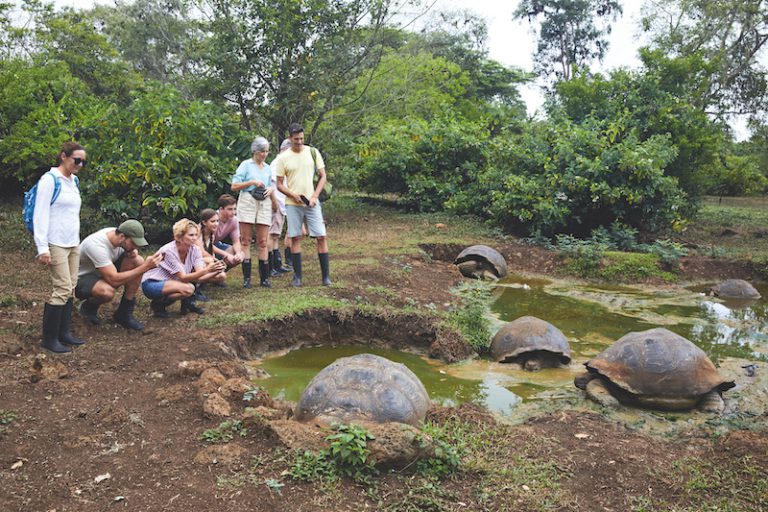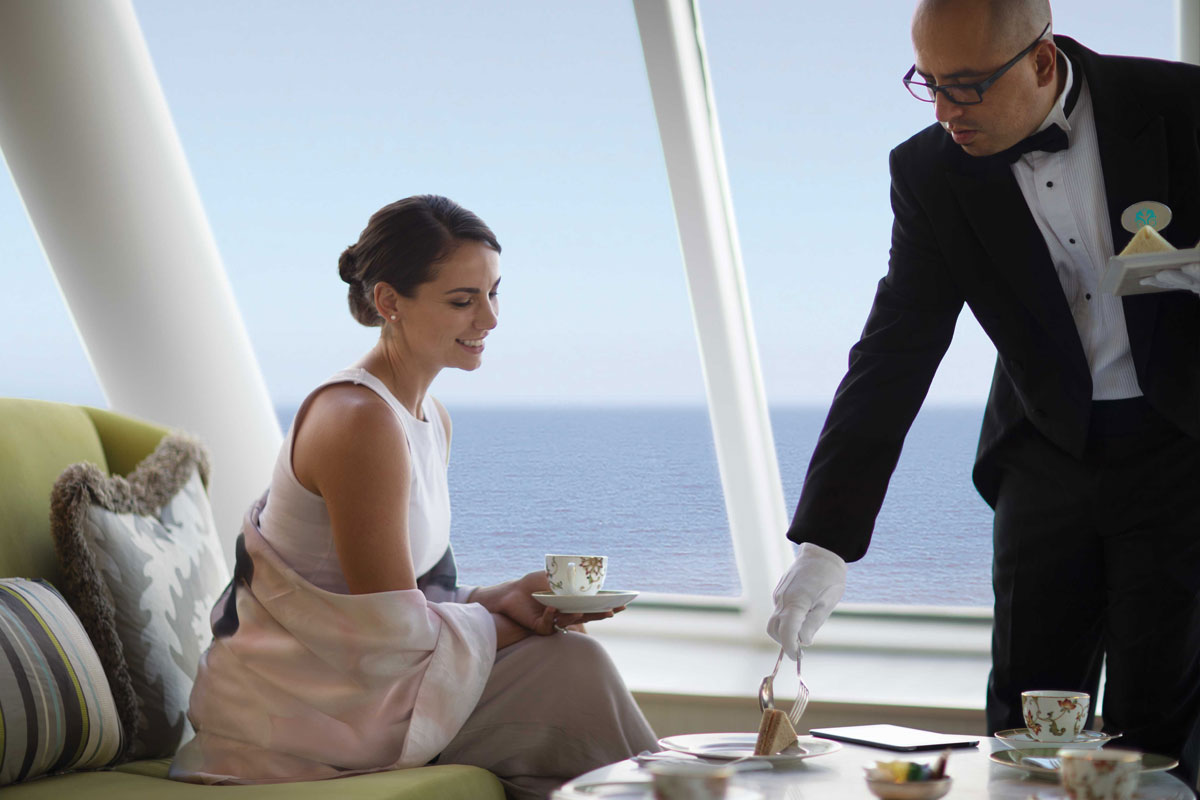The protection of wildlife is front and centre as guests seek answers to how their holiday will affect the animals of our planet.
Resorts and cruise lines alike are doing what they can to support the local wildlife wherever they are.
Looking toward the future
Purpose-built for the Galapagos, the Celebrity Flora is the only cruiser in the region with dynamic positioning whereby it uses technology to maintain its position therefore protecting the seafloor (and subsequently wildlife) from damage caused by traditional anchors.
On board the Celebrity Flora, guests are fully submersed in the beauty of the Galapagos and encouraged to help out with restorative activities. In the past few years, more than 50,000 trees have been planted in a reforestation effort that will breathe new hope into wildlife species who rely on the native trees for survival.
Working in collaboration with the Galapagos National Park and our naturalists, our guests have donated $1.5 million to the Galapagos Fund, and planted more than 50,000 Scalesia Trees in support of the Scalesia Restoration Effort.
Onboard naturalists, certified by Galapagos National Park, lead small groups of no more than 12 explorers. Activities are curated by science advisor Ellen Prager, an acclaimed marine biologist and author, and each night guests are briefed on upcoming adventures.
In partnership with locals
Two private islands in the Caribbean are the focus of Norwegian Cruise Line’s pledge to ‘continue to protect and preserve animals and their eco-systems in port destinations’.
On Harvest Caye in Belize, NCL helps support the protection of a local population of threatened scarlet macaws and keel billed toucans.
And at the company’s Bahamian island, Great Stirrup Caye, NCL partners with experts in marine biology to help guests understand the fragility of coral eco-systems in the surrounding reefs.
When Royal Caribbean recently joined forces with WWF Australia and Australian Museum Research Institute to launch ‘surrender your shell’, a project to help stop the illegal trade of critically endangered hawkbill turtles, the uptake was staggering.
And as female marine turtles return to the same place to lay eggs, scientists were able to extract DNA from the donated items pinpointing the location the turtle was seized from, therefore enabling authorities to crackdown on poaching hotspots.
Happy whales
A global interactive website called Happywhale, is making a huge splash in polar tourism.
Brainchild of marine biologist, Ted Cheeseman who has been involved in eco-tourism for the last three decades (mainly in Antarctica), the platform is designed to identify and track whales in order to provide data for scientists to understand whale migration and the important role they play in the health of the oceans, and subsequently the entire marine food chain.
Ponant and Aurora Expeditions are leading the way by adopting the Happywhale project as part of their citizen science programs.
Donations also help to support the studies undertaken and guests can even name their whale, if it hasn’t already got one.








